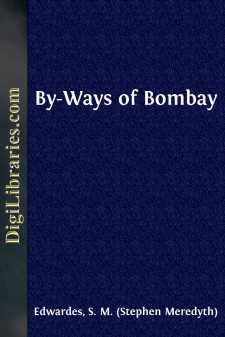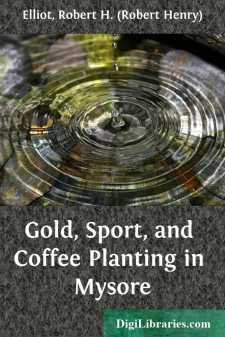Categories
- Antiques & Collectibles 13
- Architecture 36
- Art 48
- Bibles 22
- Biography & Autobiography 813
- Body, Mind & Spirit 142
- Business & Economics 28
- Children's Books 15
- Children's Fiction 12
- Computers 4
- Cooking 94
- Crafts & Hobbies 4
- Drama 346
- Education 46
- Family & Relationships 57
- Fiction 11828
- Games 19
- Gardening 17
- Health & Fitness 34
- History 1377
- House & Home 1
- Humor 147
- Juvenile Fiction 1873
- Juvenile Nonfiction 202
- Language Arts & Disciplines 88
- Law 16
- Literary Collections 686
- Literary Criticism 179
- Mathematics 13
- Medical 41
- Music 40
- Nature 179
- Non-Classifiable 1768
- Performing Arts 7
- Periodicals 1453
- Philosophy 64
- Photography 2
- Poetry 896
- Political Science 203
- Psychology 42
- Reference 154
- Religion 513
- Science 126
- Self-Help 84
- Social Science 81
- Sports & Recreation 34
- Study Aids 3
- Technology & Engineering 59
- Transportation 23
- Travel 463
- True Crime 29
By-Ways of Bombay
Description:
Excerpt
I.
THE SPIRIT OF CHANDRABAI.
A STUDY IN PROTECTIVE MAGIC.
Fear reigned in the house of Vishnu the fisherman: for, but a week before, his wife Chandra had died in giving birth to a child who survived his mother but a few hours, and during those seven days all the elders and the wise women of the community came one after another unto Vishnu and, impressing upon him the malignant influence of such untimely deaths, bade him for the sake of himself and his family do all in his power to lay the spirit of his dead wife. So on a certain night early in December Vishnu called all his caste-brethren into the room where Chandra had died, having first arranged there a brass salver containing a ball of flour loosely encased in thread, a miniature cot with the legs fashioned out of the berries of the "bhendi," and several small silver rings and bangles, a coral necklace and a quaint silver chain, which were destined to be hung in due season upon the wooden peg symbolical of his dead wife's spirit in the "devaghar," or gods' room, of his house. And he called thither also Rama the "Gondhali," master of occult ceremonies, Vishram, his disciple, and Krishna the "Bhagat" or medium, who is beloved of the ghosts of the departed and often bears their messages unto the living.
When all are assembled, the women of the community raise the brass salver and head a procession to the seashore, none being left in the dead woman's room save Krishna the medium who sits motionless in the centre thereof; and on the dry shingle the women place the salver and two brass "lotas" filled with milk and water, while the company ranges itself in a semi-circle around Rama the Gondhali, squatting directly in front of the platter. For a moment he sits wrapped in thought, and then commences a weird chant of invocation to the spirit of the dead woman, during which her relations in turn drop a copper coin into the salver. "Chandrabai," he wails "take this thy husband's gift of sorrow;" and as the company echoes his lament, Vishnu rises and drops his coin into the plate. Then her four brothers drop a coin apiece; her sister-in-law, whispering "It is for food" does likewise; also her mother with the words "choli patal" or "Tis a robe and bodice for thee";вÐâand so on until all the relatives have cast down their offerings,вÐâone promising a fair couch, another an umbrella, a third a pair of shoes, and little Moti, the dead woman's eldest child, "a pair of bangles for my mother," until in truth all the small luxuries that the dead woman may require in the life beyond have been granted. Meanwhile the strange invocation proceeds. All the dead ancestors of the family, who are represented by the quaint ghost-pegs in the gods' room of Vishnu's home, are solemnly addressed and besought to receive the dead woman in kindly fashion; and as each copper coin tinkles in the salver, Rama cries, "Receive this, Chandrabai, and hie thee to thy last resting-place."
When the last offering has been made, the women again raise the salver and the party fares back to Vishnu's house, where a rude shrine of Satvai (the Sixth Mother) has been prepared....




